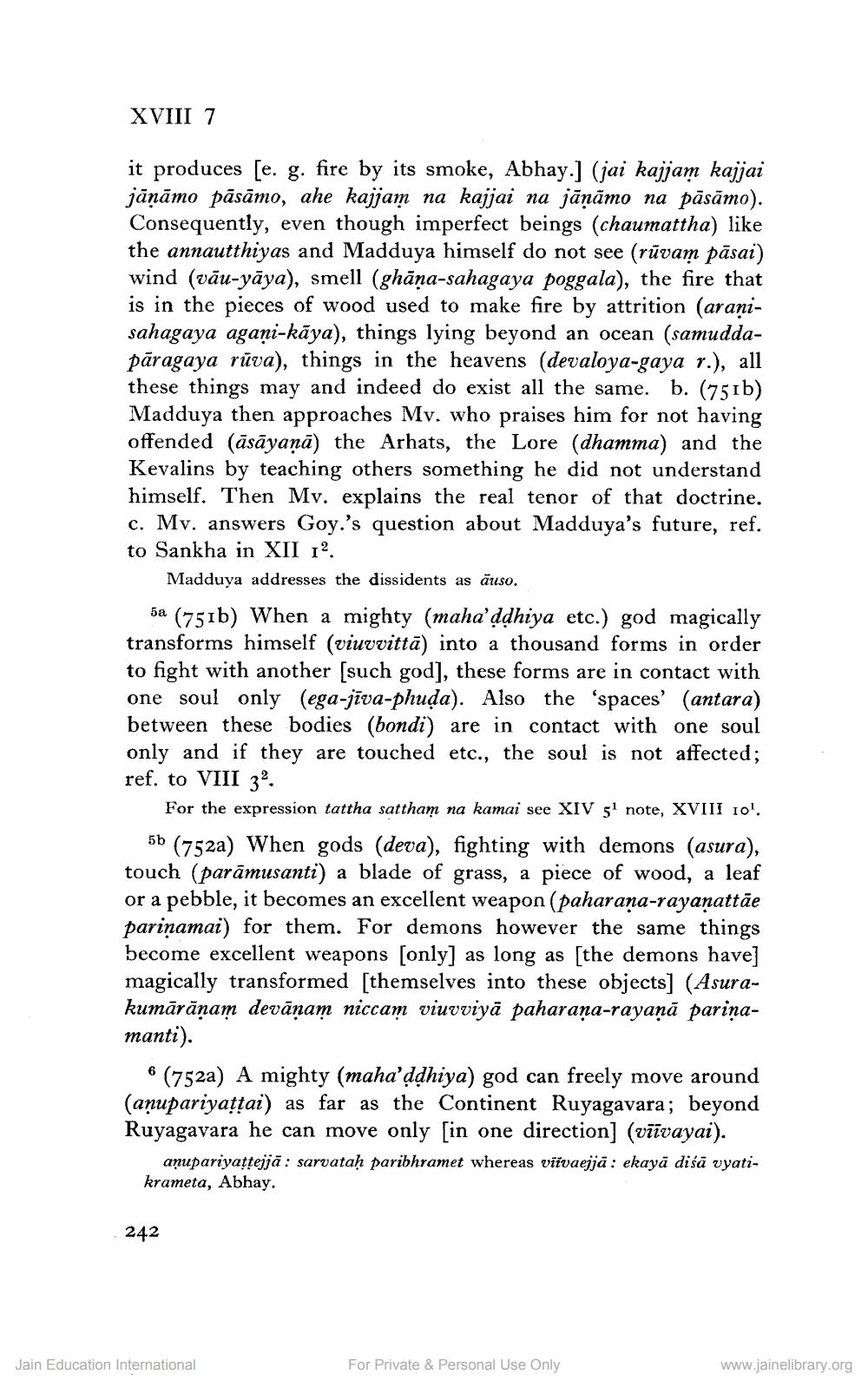________________
XVIII 7
it produces [e. g. fire by its smoke, Abhay.] (jai kajjam kajjai jāņāmo pāsāmo, ahe kajjam na kajjai na jāņāmo na pāsāmo). Consequently, even though imperfect beings (chaumattha) like the annautthiyas and Madduya himself do not see (rūvam pāsai) wind (vāu-yāya), smell (ghāņa-sahagaya poggala), the fire that is in the pieces of wood used to make fire by attrition (aranisahagaya agari-kāya), things lying beyond an ocean (samuddapāragaya rūva), things in the heavens (devaloya-gaya r.), all these things may and indeed do exist all the same. b. (751b) Madduya then approaches Mv. who praises him for not having offended (āsāyaṇā) the Arhats, the Lore (dhamma) and the Kevalins by teaching others something he did not understand himself. Then Mv. explains the real tenor of that doctrine. c. Mv. answers Goy.'s question about Madduya's future, ref. to Sankha in XII 12.
Madduya addresses the dissidents as äuso. 5a (751b) When a mighty (maha’ddhiya etc.) god magically transforms himself (viuvvittā) into a thousand forms in order to fight with another (such god], these forms are in contact with one soul only (ega-jīva-phuda). Also the 'spaces' (antara) between these bodies (bondi) are in contact with one soul only and if they are touched etc., the soul is not affected; ref. to VIII 3.
For the expression tattha sattham na kamai see XIV s' note, XVIII 10'. 5b (752a) When gods (deva), fighting with demons (asura), touch (parāmusanti) a blade of grass, a piece of wood, a leaf or a pebble, it becomes an excellent weapon (paharana-rayanattāe pariņamai) for them. For demons however the same things become excellent weapons [only] as long as [the demons have] magically transformed [themselves into these objects] (Asurakumārāṇam devānam niccam viuvviyā paharaṇa-rayaņā pariņamanti).
6 (752a) A mighty (maha’ddhiya) god can freely move around (anupariyațțai) as far as the Continent Ruyagavara; beyond Ruyagavara he can move only [in one direction] (vīīvayai).
anupariyattejjā: sarvataḥ paribhramet whereas viivaejja: ekayā diśā vyatikrameta, Abhay.
242
Jain Education International
For Private & Personal Use Only
www.jainelibrary.org




